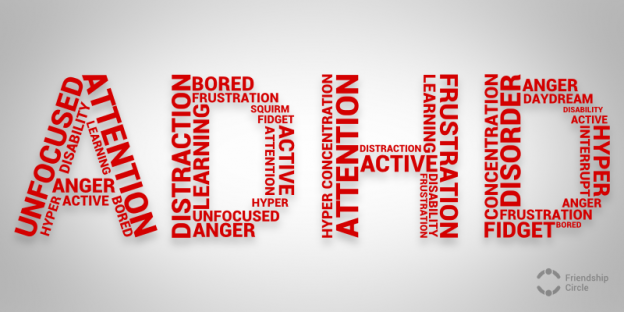Attention-deficit/hyperactivity disorder (ADHD) is defined as a brain disorder marked by an ongoing pattern of inattention and/or hyperactivity-impulsivity that interferes with functioning or development. Attention-deficit/hyperactivity disorder (ADHD) is a condition that affects 9.5% of children all over the world.
Some of the misconceptions about attention deficit hyperactivity disorder (ADHD) include the following:
| Myth | Fact | |
| 1. | ADHD isn’t a real medical disorder. It is just a condition. | ADHD is a medical disorder, not a condition of the child’s will. A child with ADHD does not choose to misbehave. Research shows that it is a result of an imbalance of neurotransmitters in the brain. Its primary symptoms are inattention, impulsiveness, and, sometimes, hyperactivity. |
| 2. | Having ADHD means the person is simply lazy or dumb. | ADHD has nothing to do with a person’s intellectual ability or their motor skills. Some highly intelligent people, such as Mozart, Benjamin Franklin & Abraham Lincoln, have ADHD. People with ADHD typically face difficulty with aspects of daily life, including time management and organizational skills. |
| 3. | If a child has ADHD, he or she can always be easily diagnosed in the doctor’s office. | A child may not always show symptoms of ADHD, especially in an unfamiliar setting. Evaluating a child from one office observation may result in failure to recognize or diagnose symptoms. |
| 4. | Children with ADHD are learning to use the condition as an excuse for their behavior. | ADHD is a disability, not a voluntary privilege. Children with ADHD have to learn ways to deal with their symptoms (inattention, impulsivity, and hyperactivity) that cause them to have difficulties in life. Special accommodations, such as extra time on tests, simply level the playing field so that kids with ADHD can learn as successfully as their classmates. |
| 5. | ADHD is caused by bad parenting. All the child needs is good discipline. | ADHD is not caused by bad parenting. But parenting techniques can often improve some symptoms and make others worse. When a child with ADHD blurts things out or gets out of his seat in class, it’s not because he hasn’t been taught that these behaviors are wrong. It’s because he cannot control his impulses. The problem is rooted in brain chemistry, not discipline. In fact, overly strict parenting — which may involve punishing a child for things he can’t control — can actually make ADHD symptoms worse. |
| 6. | Children outgrow ADHD. | About 70 out of 100 children with ADHD continue to have symptoms during their teen years and about 50 out of 100 have symptoms into adulthood. |
| 7. | Medicine prescriptions for ADHD have greatly increased in the past few years, because the condition is being “overdiagnosed.” | ADHD is estimated to affect about 3 to 7 out of 100 school-age children in the United States. There is little evidence to support claims that ADHD is overdiagnosed and that ADHD medicines are overprescribed. |
| 8. | The diagnosis of ADHD is confirmed if certain medicines (psychostimulants) have a positive effect on what seem to be symptoms of ADHD. | Children without ADHD respond to psychostimulants similarly to children with ADHD. A trial of medicine cannot be used to diagnose the condition. |
| 9. | Medicine for ADHD will make a person seem drugged. | On the contrary, properly adjusted medicine for ADHD sharpens a person’s focus and increases his or her ability to control behavior. |
| 10. | ADHD is a life sentence. | Although ADHD symptoms usually continue into adulthood, the person learns ways to cope with the symptoms. People with ADHD have plenty of energy, are creative, and can often accomplish more than people who do not have the condition. |
Addressing ADHD at iThrive
At iThrive, we:
- Conduct the Assessments needed for ADHD
- Provide Education and Training Programs for the parents. These programs help parents to understand and accept their child, teach them how to help their children organize the environment and cope with frustrations
- Customize the Medical and Behavioral Therapy plans as per need of the children
- Provide a combination of therapy and medication
Medication can help reduce symptoms of hyperactivity, inattentiveness, and impulsivity in children. Through Behavior therapy, the child learns to strengthen his positive behaviors and reduce unwanted or problem behaviors, which later transforms into a habit.
Hence, ADHD can be successfully MANAGED and dealt with, if timely intervention and assistance is provided to the child.
Who can diagnose ADHD and how?
A Doctor or a psychologist can diagnose the child with ADHD using various assessment tools. If and when diagnosed, the parents will learn the real cause of their child’s behavior which will help them accept and take measures for dealing with it.
A combination of therapy and medication, which is the most helpful treatment, is provided at iThrive.

